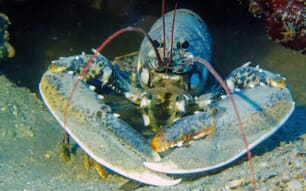Applications for the funding should be directed to the Humane Slaughter Association (HSA), which stresses that worldwide, billions of farmed finfish are slaughtered for human consumption - far greater than any other type of mammal or bird, and many of these fish are not humanely stunned before slaughter. The most common methods of slaughter are likely to expose them to substantial suffering over a prolonged period of time. Many species of farmed fish are typically killed by being taken out of water and left to asphyxiate in air, while some might be frozen or gutted while still conscious.
In addition, many crustaceans and cephalopods are slaughtered for food without stunning. There are increasing concerns about the welfare of these species but there is a lack of practical and scientifically validated humane stunning methods for them. The HSA wishes to support the development of humane stunning methods which will preclude the possibility of these animals experiencing pain or distress at the time of slaughter.
HSA’s Chief Executive & Scientific Director Dr Robert Hubrecht said: “There is good evidence that we need to be concerned about the welfare of fish, and perhaps also for some cephalopods and crustacea. This evidence has already resulted in the introduction of legislation, in various countries, to protect fish welfare around slaughter, but the legislation is limited, and more knowledge is needed. The HSA hopes that this new substantial funding will lead to significant improvements in the welfare at slaughter of fish and also cephalopods and crustacea.”
Criteria
The HSA is now seeking applications from academic institutions, commercial companies or any other organisation suitably qualified to carry out the research. Applications from consortia where, for instance, academic and industrial partners collaborate on a project, will also be welcome.
The project(s) should identify and/or validate a method for stunning of farmed finfish, crustaceans or cephalopods undergoing a typical commercial-scale harvest, which is humane (causes the minimum pain, suffering or distress); commercially viable and practical, so that the method is likely to be adopted by industry. Applicants may apply for some or all of the funding and applications can be combined if applicants wish to address the humane slaughter of both crustaceans and cephalopods. The HSA may divide the award/funds between two or more proposals.
The application process is a two-stage process. Applicants will be asked to submit an initial concept note, briefing summarising the proposed project and, following review, selected applicants will be asked to submit a full proposal. For further information on the funding and how to apply, see www.hsa.org.uk/grants-awards. Deadline for submission of concept notes is 12.00 GMT on 31 May 2018.


